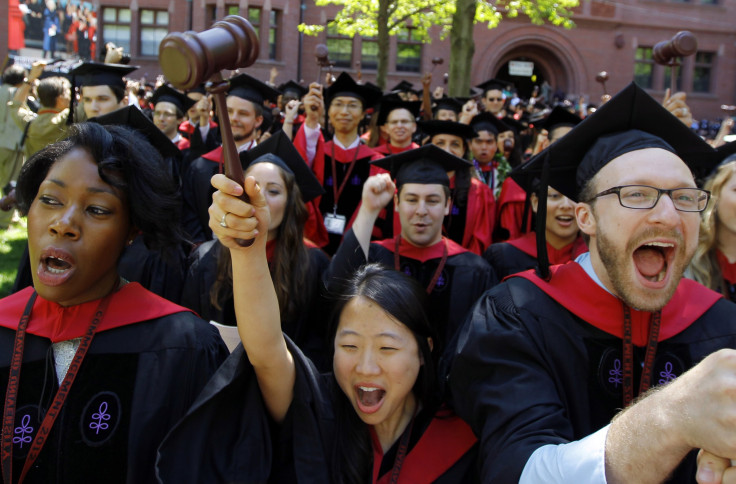Here's Why Harvard and Yale Law Schools Are Exiting US News Rankings

In a decision that will shake up the college ratings, Harvard and Yale Law Schools announced on Wednesday that they will no longer participate in the U.S. News and World Report's yearly law school rankings.
The universities made the announcement in separate letters posted on their school websites. Both schools cited flaws in the ranking algorithm as reasons for their withdrawal.
U.S. News and World Report is a magazine known for its consumer guides and ratings. Its annual college rankings have been in practice since 1983.
Yale ranked first in this year's law school rankings, followed by Stanford and the University of Chicago. Columbia and Harvard tied for fourth.
Both of the schools' letters highlighted similar areas of concern, primarily the ranking methodology that devalues graduates pursuing careers in service, undercuts efforts by schools to recruit students from lower economic backgrounds, and focuses on merit over need-based aid.
"It does not advance the best ideals of legal education or the profession we serve, and it contradicts the deeply held commitments of Harvard Law School," said Harvard Law School Dean John Manning in his letter to the community.
Manning said the decision was made after much consideration and that Harvard has brought its concerns directly to the publication and to the U.S. News' Law Deans Advisory Board for years. There has been no attempt to change the methodology.
Yale Law School Dean Heather Gerken said while Yale is typically at the top of the list, the university has made efforts to change the U.S. News methodology. Gerken called the rankings "profoundly flawed."
"They [U.S. News] disincentivize programs that support public interest careers, champion need-based aid, and welcome working-class students into the profession," Gerken said. "We have reached a point where the rankings process is undermining the core commitments of the legal profession. As a result, we will no longer participate."
Schools voluntarily provide information to U.S News for the rankings each year. The data handed over includes test scores, undergraduate grades, and financial aid numbers. Critics of the ranking process have said the data can be easily manipulated.
Columbia University removed itself from the national rankings list over the summer after a university math professor found flaws in the school's data. Following an investigation, it was found that the data was inaccurate, and the school's national ranking fell from second to 18th.
Following Wednesday's announcements, U.S. News released two statements. In response to Yale's exit from the rankings, the publication said it will continue with its mission to "ensure that law schools are held accountable for the education they will provide."
After Harvard released its announcement, U.S. News took a more direct approach, It stated in an email to the New York Times, "We agree that test scores don't tell the full story of an applicant, and law schools make their own decisions on the applicant pool based on the mission of the school."
© Copyright IBTimes 2025. All rights reserved.





















